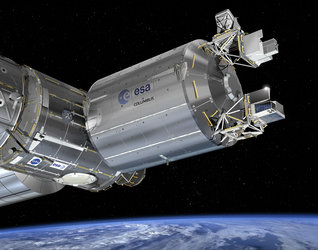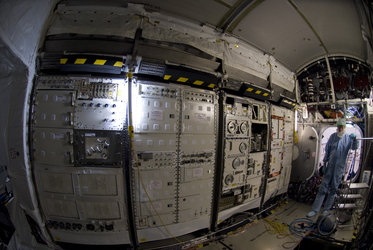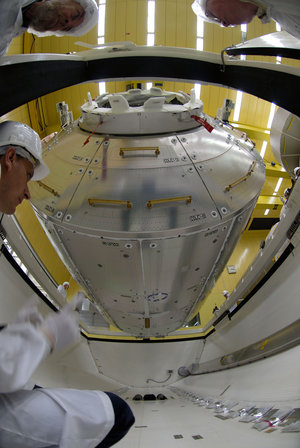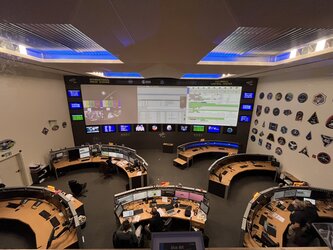
Astrium Columbus Development
Stylised beauty filming of the development of the Columbus laboratory. This ISS module is the European Space Agency's science laboratory which will be attached to the International Space Station and has been built by Astrium in Germany.
The science module Columbus is ESA's biggest single contribution to the International Space Station. Currently scheduled to launch late in 2004, the 4.5-metre cylindrical module will give an enormous boost to the station's research capabilities. During its 10-year projected lifespan, Earth-based researchers - sometimes with a little help from the ISS crew - will be able to conduct thousands of experiments in life sciences, materials science, fluid physics and a whole host of other disciplines, all in the weightlessness of orbit.
Not available






